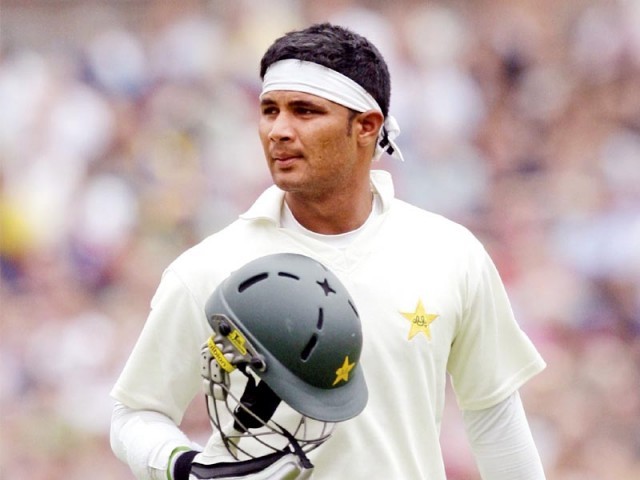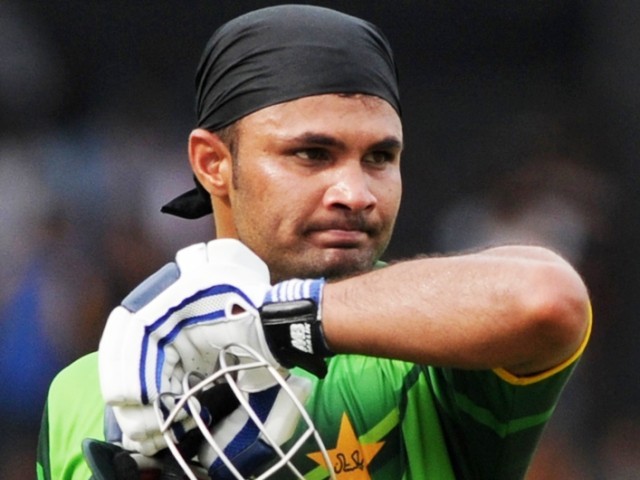Source link (google.com)
Imran Farhat (Urdu: عمران فرحت, born 20 May 1982) is a Pakistani cricketer who plays[1] all three formats of the game for Pakistan.
He usually opens the batting in most of his international innings.[2]
Contents [show]
Family[edit]
His brother Humayun Farhat has also played International cricket for Pakistan. He is the son in law of once Pakistan batsman Mohammad Ilyas.
Domestic career[edit]
Farhat made his senior debut aged 15 in a one-day match for Karachi City against Malaysia, together with three other players who went on to play Test cricket (Taufeeq Umar, Bazid Khan and Kamran Akmal).
He continued to score heavily in the domestic competitions and a century in a practise game against the visiting Indian team was rewarded with a place in the squad to take on India in the Test series in 2006.
International career[edit]
Three years later, in February 2001, Farhat made his One Day International debut, against New Zealand in Auckland, scoring 20 runs in a chase of 150 to win. After the tour of New Zealand, where Farhat played three Tests and three ODIs, he was sent back to domestic cricket before returning against Australia in the third Test of the 2002–03 series, where he made 30 and 22 in an innings defeat. However, he was retained for the home two-Test series against South Africa in 2003–04, where he scored 235 runs including a maiden Test century in a 1–0 series win, second behind fellow opener Taufeeq Umar.
A month later, Farhat played in an ODI-only series against New Zealand, which Pakistan won 5–0, and Farhat made three fifties along with his second international century, ending with 348 runs at a batting average of 69.60, once again the second-highest number of runs – this time behind Yasir Hameed. The season was rounded off with another century, this time against India, where he made 101 to help Pakistan gain a 202-run first-innings lead and eventually won the match by nine wickets. However, Farhat tallied 81 runs in the other two matches, which Pakistan lost to lose the series 1–2.
Farhat was less impressive the following season, however, and in four Tests, two against Sri Lanka and two against Australia, he only passed fifty twice, ending the season with 199 runs at 24.87 before the selectors left him out for the third Test of the series with Australia.
In September 2004, just before the 2004–2005 season, he had been dropped from the ODI side following the 2004 Champions Trophy, as he had failed to pass 40 with any of his last ten innings, and that included 38 not out against the non-Test nation of Kenya, 20 against ODI debutants Hong Kong and 24 against Bangladesh.
He returned to Test cricket in style against India, with an important half century in the deciding third Test at Karachi. He scored a brilliant unbeaten century in the final test against New Zealand in 2009.
The Bangladesh national cricket team (Bengali: বাংলাদেশ জাতীয় ক্রিকেট দল), nicknamed The Tigers, represents Bangladesh in international cricket. It is administered by the Bangladesh Cricket Board (BCB). Bangladesh is a full member of the International Cricket Council (ICC) with Test and One Day International (ODI) status. It played its first Test match in November 2000 against India in Dhaka, becoming the tenth Test-playing nation.
Bangladesh's first official foray into international cricket came in the 1979 ICC Trophy in England. On 31 March 1986, Bangladesh played its first ODI match, against Pakistan in the Asia Cup. For a long time, football was the most popular sport in Bangladesh, but cricket gradually became very popular – particularly in urban areas – and by the late 1990s had surpassed football.
In 1997, Bangladesh won the ICC Trophy in Malaysia and thus qualified for its first Cricket World Cup to participate in England in 1999. There, it defeated Pakistan – causing much upset – and also Scotland. On 26 June 2000, Bangladesh was granted full ICC membership.
Bangladesh holds the record for most consecutive losses in Tests (21, between 2000 and 2002) and ODIs (23, between 2001 and 2004). After gaining full member status with the ICC, Bangladesh had to wait until 2004 for its first ODI win since the 1999 World Cup. The team on the losing side on that occasion was Zimbabwe, who also participated in Bangladesh's maiden Test victory in 2005; by securing a draw in the second match, Bangladesh won their first Test series. In 2009 Bangladesh toured the West Indies for two Tests and by winning both secured their first overseas Test series victory.
As of 24 May 2017, Bangladesh has played 101 Tests, winning ten tests among them. Its first victory was against team Zimbabwe, and the next two came against the West Indian team. Results have improved predominantly at home with draws earned against New Zealand, Pakistan, India and South Africa and wins against England, Sri Lanka and Australia.[10] They played their 100th Test when they toured Sri Lanka in March 2017.[11]
The team has been more successful in ODIs, having won 104 of its 328 matches.[12] It has also played 67 Twenty20 Internationals, winning 21.[13] However the limited over success is due to the wins against Zimbabwe and associate members (65 ODI wins and 13 T20I wins respectively).[14][15]
Bangladesh is currently ranked eighth in Tests, seventh in ODIs and tenth in T20Is by the ICC.[16]
Several East Pakistan-based sides played in Pakistani domestic cricket prior to Bangladesh's declaration of independence of 1971—the East Pakistan cricket team fielded three players who later played ICC Trophymatches. In 1977, Bangladesh became an Associate member of the International Cricket Council (ICC).[17]Bangladesh was one of fifteen teams to take part in the inaugural ICC Trophy. Held in 1979, it gave non-Test playing countries the opportunity to qualify for that year's World Cup. Bangladesh, under the captaincy of Raqibul Hasan, won two matches and lost two, but failed to progress beyond the first round.[18][19] Victory in the South-East Asian Cricket Conference Tournament in February 1984 ensured Bangladesh qualified for the 1986 Asia Cup.[20] On 31 March 1986, Bangladesh played their first One Day International against a full member of the ICC;[21]
Imran Farhat
Imran Farhat
Imran Farhat
Imran Farhat
Imran Farhat
Imran Farhat
Imran Farhat

Imran Farhat
Imran Farhat
Imran Farhat
Imran Farhat








No comments:
Post a Comment